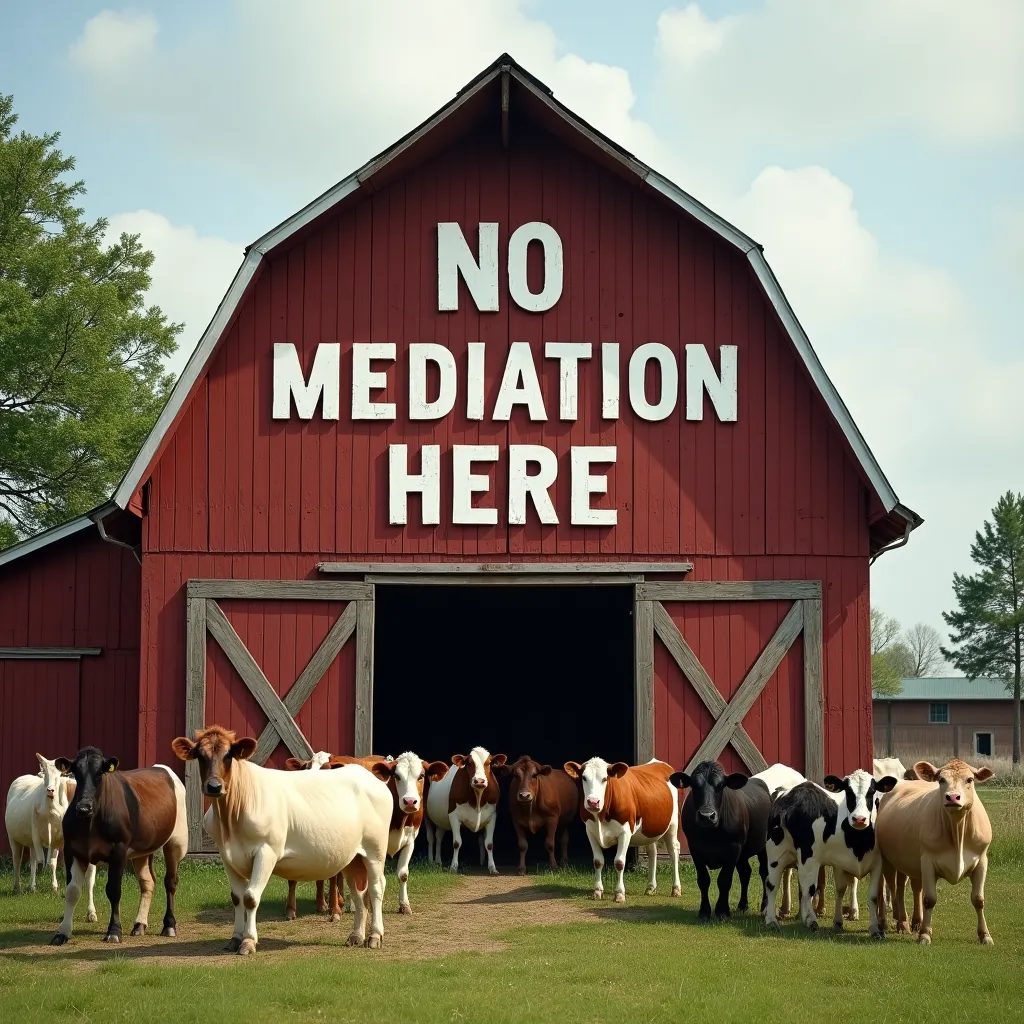
Born in a Barn? An expensive lesson in unreasonably refusing to engage in mediation
In this Guest Blog, Barrister, Arbitrator & Mediator Robin Somerville looks at the potential impact of a refusal to mediate in Conway v Conway & Anor (Rev1) [2024] EW Misc 19 (CC).
You’ll know the well-known phrase “Were you born in a barn?” meaning “Engaging in the annoying behaviour of inappropriately, and usually neglectfully, leaving open a door or window.” Well this phrase was particularly apt of the Defendants in Conway v Conway & Anor (Rev1) [2024] EW Misc 19 (CC).
In the Conway case, which was all about the ownership of a barn, the Defendants refused the Claimant’s repeated offer of mediation. Although the Defendants prevailed at trial, in his judgment on the substantive claim, HHJ Mithani KC said
“One matter that seriously concerns me is why the Defendants did not agree to mediation when it was put to them. The importance of mediation can never be over-emphasised: see, for example, the recent decision of the Court of Appeal in Churchill v Merthyr Tydfil County Borough Council [2023] EWCA Civ 1416. The Defendants will have to advance compelling reasons why the offer of mediation was rejected out of hand by them.”
When it came to what legal costs the Defendants should be entitled to recover, the Judge did not find that mediation would probably not have succeeded. To the contrary it was found that it was not possible for the Defendants to say that they were almost certainly likely to win. That is because, notwithstanding the documentary evidence in the case, the Claimant could have persuaded the Court on their case at trial.
It was therefore wrong of the Defendants to conclude that just because the parties strongly disagreed with each other, that meant that mediation would not have resulted in agreement. It was entirely possible that the Claimant may have made more attractive offers at mediation than they had during without prejudice correspondence.
The key point is that a skilled and experienced mediator would have been able to explore various options that may have lead the parties to settlement. That is why it was unreasonable for the Defendants to refuse outright to mediate.
The Judge reduced the amount of costs that the Defendants were awarded by 25%, awarding them just 75% of their cost budget, namely around £47,000 instead of their actual costs which were significantly higher.
The Defendants would have therefore been substantially better off if they had agreed to go to mediation, even if it had been successful and they went on to win at trial.
So it appears that on this occasion the Defendants engaged in the annoying behaviour of inappropriately, and usually neglectfully, leaving open a door or window – namely the mediation door or window of an opportunity to settle the dispute consensually by mediation.
Hopefully the Churchill decision and the new CPR rules which give judges the power to order parties to mediation will reduce the number of cases where one party unreasonable refuses to mediate.
By Robin Somerville, Barrister, Arbitrator and Mediator.
https://www.robinsomerville.co.uk/ mail@robinsomerville.co.uk
